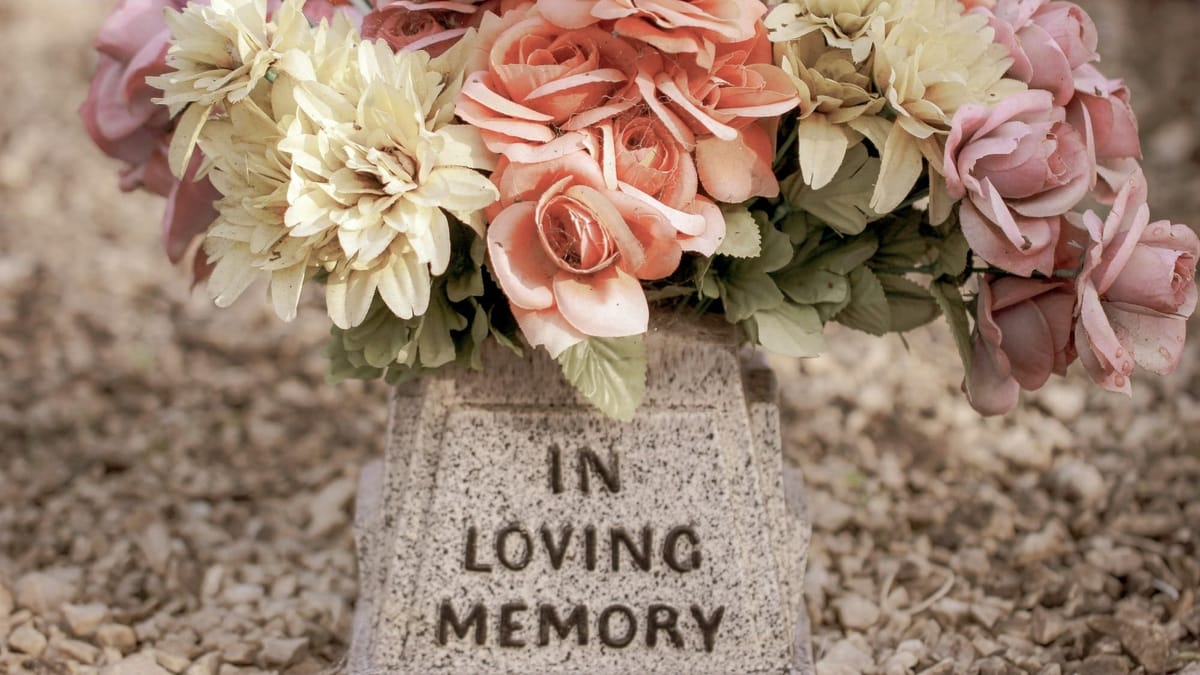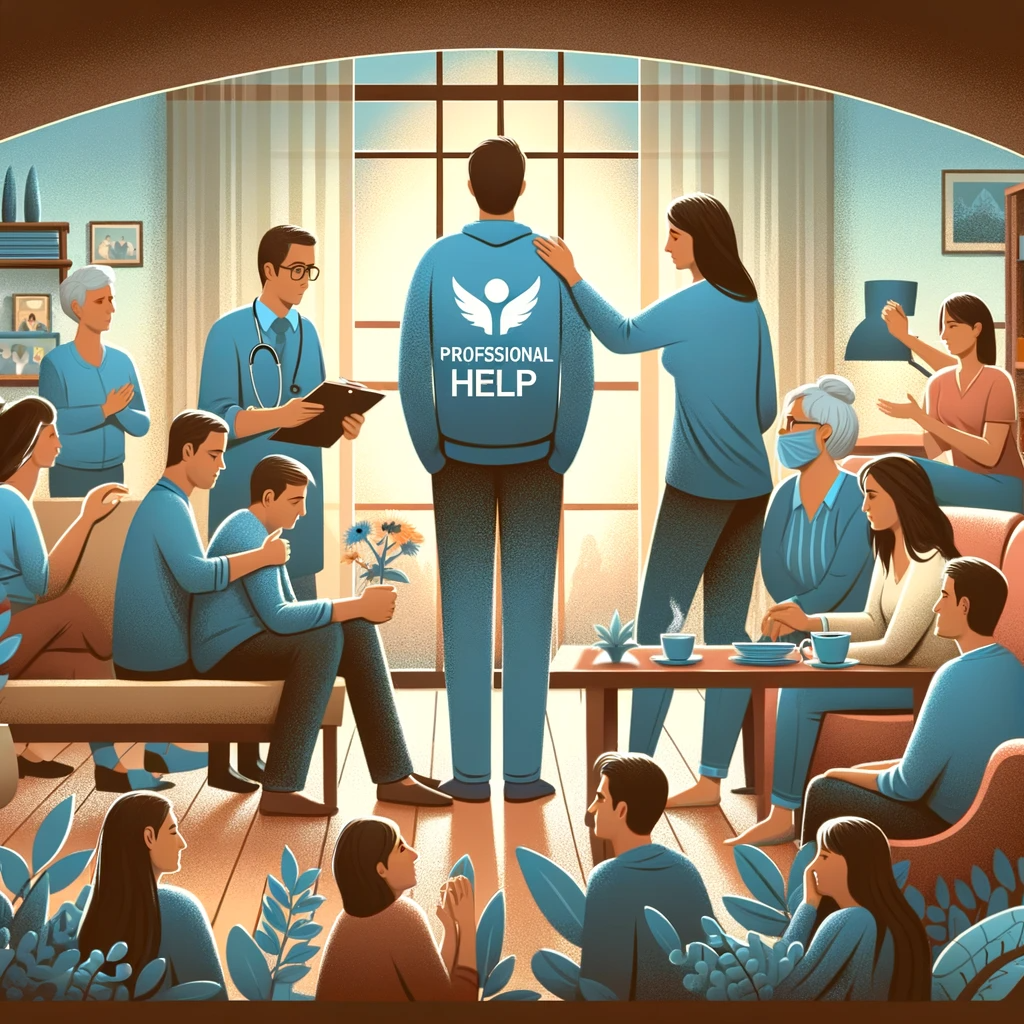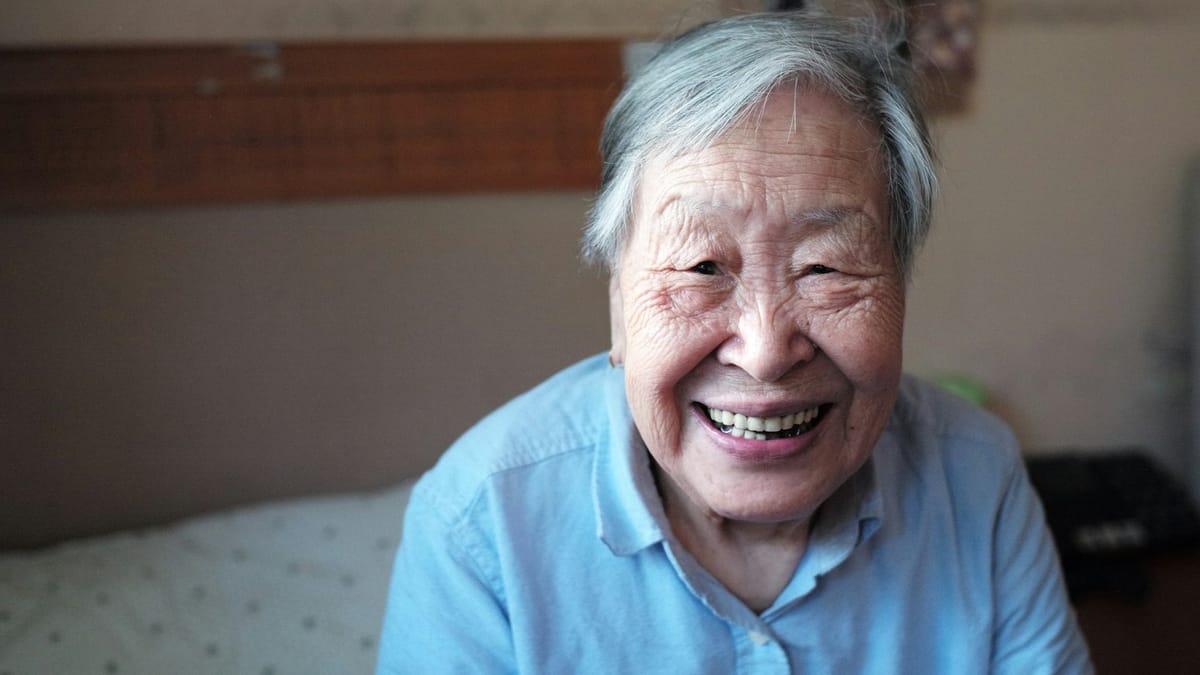Grief Mother: Navigating the Complex Journey of Loss and Healing
Losing your mother is a deeply painful experience that can leave you feeling alone. Our unique course with meditation can help you work through your grief and find resolution. Share your thoughts and feelings with others who understand.

"Only One Mother"
by an Unknown Author
In the vast expanse of the sky, countless stars gleam bright,
Shells gather on the shore, a myriad in the same light,
Birds take flight with songs in the azure sky,
Sunny weather greets them as they flutter and fly.
Dewdrops embrace the dawn with a glistening morn,
Bees hum in the clover, where purple flowers adorn,
Butterflies dance on the lawn, their beauty to discover,
Yet, 'tis one mother we cherish the wide world over.
The loss of a mother is an experience that profoundly touches the depths of our souls. It leaves an indelible mark on our lives, regardless of our age. I, myself, became a motherless daughter at the tender age of 18, the eldest of four siblings. The absence of my mother reverberated throughout my existence, shaping my choices, shaping my perspectives on life and death, and influencing the dynamics of my relationships.
From personal experience, I can attest that the loss of a mother is a life-altering event. It compelled me to confront my own mortality at a young age, and I've yearned for her presence on countless occasions throughout my life. I longed for her embrace during pivotal moments, like the birth of my children and the most challenging times, such as the loss of my oldest son.
My mother departed this world prematurely, and in my youth, I never envisioned outliving her. It's quite astonishing to find myself now, two decades older than she was at the time of her passing.
The loss of a mother evokes a multitude of emotions that will ebb and flow throughout your life's journey. Sharing your thoughts and feelings with others can serve as a balm for your own healing and provide solace to those who, like you, might feel isolated in their grief.
Grief, a complex and deeply personal experience, especially in the wake of losing a mother, is a journey that requires understanding, compassion, and support. This article, intended for those grappling with the sorrow of a mother's death, aims to provide insights into the grieving process, the significance of seeking support from mental health professionals, and the myriad ways individuals can navigate through their pain towards healing.

The Importance of Mental Health Professionals in Grieving
When dealing with the profound loss of a mother, engaging with mental health professionals can be a crucial step towards healing. Grief counselors, family therapists, and other mental healthcare professionals are equipped with the knowledge and empathy to guide individuals through the maze of emotions that accompany such a significant loss. These experts can offer personalized coping strategies, ensuring the bereaved recognize there is no right or wrong way to grieve.
Understanding the Grieving Process After the Loss of a Mother
Grieving the death of a parent, especially a mother, is an intensely personal and varied experience that can profoundly affect every aspect of one’s life. The grief experienced in the wake of a mother's death is multifaceted, encompassing a wide range of emotions from profound sadness and anger to confusion and, in some instances, relief—especially in scenarios marked by a complicated relationship or a prolonged illness. These emotions are an integral part of the grieving process, reflecting the deep connection and significant impact a mother has on an individual's life.
Mental health professionals, including grief counselors, family therapists, and clinical psychologists, play a crucial role in supporting individuals through this challenging time. Recognized by the American Psychiatric Association, the grieving process is acknowledged as a critical mental health concern that, if not navigated properly, can lead to prolonged grief or complicated grief—a condition that can severely impair an individual's daily functioning and overall quality of life. It's essential to understand that there is no right or wrong way to grieve the loss of a mother. Each person’s journey is unique, and what works for one may not work for another.
The support system surrounding an individual during this time becomes incredibly important. Family members, friends, and grief support groups can offer comfort and a shared understanding of the loss. For many, especially young adults who may be experiencing the loss of a parent for the first time, the guidance of a mental health professional can be invaluable in learning to navigate the complex emotions and challenges that arise.
Grief Support Groups
Grief support groups, whether through a local community center, a healthcare provider, or online platforms, provide a safe space for individuals to express their feelings and share experiences. This collective sharing can foster a sense of belonging and understanding, often making the grieving process feel less isolating. Additionally, for those who may find the intensity of their grief feels overwhelming or leads to thoughts of self-harm, seeking help from a mental healthcare professional or contacting a crisis hotline can provide immediate support and intervention.
Journaling to Heal after the Loss of Mother
Engaging in personal coping mechanisms, such as maintaining a grief journal, can also be a therapeutic way for individuals to process their feelings. Writing about one's mother, recounting memories, and expressing emotions that may be difficult to say out loud can offer a private outlet for grief. This practice, often recommended by therapists in both private practice and clinical settings, can help individuals make sense of their loss and gradually find their way back to a semblance of daily life without their mother's physical presence.
The loss of a mother can also bring about a reevaluation of one's life, relationships, and priorities. Significant dates such as Mother's Day, the mother's birthday, or the anniversary of her death can rekindle grief and make it feel as fresh as the moment the loss was first experienced. Mental health professionals emphasize the importance of preparing for these moments, suggesting spending time with loved ones, engaging in activities that honor the memory of the mother, or simply allowing oneself to feel and express the full range of emotions without judgment.
Ultimately, the grieving process is a deeply individual journey that can lead to growth, healing, and a renewed sense of hope. With the support of mental health professionals, loved ones, and personal coping strategies, individuals can navigate the complex emotions that accompany the loss of a mother, finding a way to integrate this significant loss into the fabric of their lives, honoring their mother's memory while moving forward with strength and resilience.

The Role of Family Members and Support Systems
The loss of a mother can significantly impact family dynamics, affecting each member differently. The support of family members becomes invaluable during such times, offering a sense of belonging and understanding. Moreover, a broader support system, including friends, grief support groups, and community resources, can provide additional layers of comfort and understanding. Engaging with people who have undergone similar experiences, such as in support groups, can offer perspectives and coping mechanisms that resonate on a personal level.
Seeking Help from Grief Support Groups and Counselors
Grief support groups and a grief counselor may provide safe spaces for individuals to express their feelings and share their experiences without judgment. These settings, whether in-person or online, facilitate connections with others who understand the depth of losing a parent. Sharing stories and listening to how others cope can be profoundly comforting and enlightening, offering hope and a sense of not being alone in one's grief
The Significance of Mental Healthcare Professionals in Addressing Mental Illness Following a Mother's Loss
The journey through grief following the loss of a mother can be one of the most emotionally taxing experiences an individual can face, often bringing to the surface or intensifying underlying mental health issues such as depression, anxiety, or even thoughts of self-harm. In these instances, the intervention of mental healthcare professionals becomes not just beneficial but crucial for the bereaved's overall well-being and recovery. These professionals, including grief counselors, clinical psychologists, and family therapists, are trained to recognize the signs of mental illness that can emerge or be exacerbated by the grieving process, offering a lifeline to those struggling to navigate their loss.
Mental health professionals employ a range of therapeutic approaches tailored to the individual’s needs and the nature of their grief. These interventions are designed to address not only the symptoms of mental illness but also to provide strategies for coping with the profound sadness and disruption to daily life that often accompanies the death of a mother. The American Psychiatric Association underscores the importance of recognizing prolonged grief and depression as significant mental health concerns that warrant professional attention. Without timely and appropriate intervention, these conditions can severely impair an individual's ability to function and lead to long-term psychological and emotional distress.
Support Systems in the Grieving Process
Support systems play a pivotal role in the grieving process, offering emotional comfort and practical assistance. However, the expertise provided by mental healthcare professionals in a therapeutic setting offers a different level of support, one that is grounded in clinical psychology and evidence-based practices. These professionals can facilitate a safe space for individuals to explore their emotions, confront their loss, and start the healing process in a constructive and healthy manner. For many, participating in grief support groups led by a trained facilitator can also offer solace and understanding, providing a community of peers who are navigating similar experiences of loss.
In cases where grief feels overwhelming and thoughts of self-harm arise, immediate intervention by mental healthcare professionals is critical. Many operate within private practice settings, but there are also accessible services through crisis hotlines and community mental health centers, ensuring support is available for those in acute distress. These resources can be life-saving, offering immediate counseling and connecting individuals with ongoing support and treatment options.
For young adults and others who may be facing the loss of a parent for the first time, the guidance and support of a mental health professional can be particularly impactful. The death of a mother can trigger a complex range of emotions, from profound sadness to guilt and anger, especially in the context of a complicated relationship or significant life events such as Father's Day or other milestones that underscore the mother's absence. Navigating these feelings, while also adjusting to a new reality without the mother figure, can feel daunting. Mental healthcare professionals can offer strategies to manage these emotions, facilitate coping mechanisms, and encourage the expression of grief in healthy ways, such as through a grief journal or memorial activities.

There is no 'Right or Wrong" way to grieve
Recognizing there is no "right or wrong" way to grieve, mental health professionals emphasize the importance of allowing oneself to fully experience and express all the emotions associated with the loss. Whether through one-on-one therapy, family therapy sessions, or support groups, these professionals provide a compassionate and understanding approach to healing, underscoring the significance of mental health care in recovering from the profound impact of a mother's death. Their support can help ensure that the grieving process leads toward healing rather than prolonged suffering, allowing individuals to find a way to honor their mother's memory while gradually rebuilding their capacity for joy and engagement in daily life.
Journaling and Other Coping Mechanisms
Many find solace in keeping a grief journal, where they can freely express their thoughts, memories, and emotions. Writing can be a therapeutic outlet for exploring feelings and reflecting on the relationship with the lost mother figure. Other coping strategies might include engaging in activities that the mother and child enjoyed together, creating a memorial space, or simply allowing oneself to feel and acknowledge the pain without judgment.

Navigating Daily Life After Loss
The impact of a mother's death on daily functioning can feel overwhelming. Tasks that once seemed routine may become burdensome, underscoring the importance of a support system in helping manage day-to-day life. Mental health professionals can offer strategies to adjust to this new reality, emphasizing the importance of self-care and the need to set realistic expectations for oneself during this difficult time.
The Long-Term Perspective: Healing and Hope
While the pain of losing a mother never fully disappears, with time and support, individuals can find ways to honor their mother's memory and integrate their loss into their lives. The journey through grief can lead to personal growth, a deeper appreciation for life, and a strengthened sense of resilience. Remembering that grief is a process that ebbs and flows can provide comfort and hope for the future.
Losing a mother is a profound experience that touches every aspect of an individual's life. While the journey through grief is intensely personal, it does not have to be navigated alone. The support of mental health professionals, family, friends, and support groups can provide the necessary guidance, understanding, and comfort to move forward. Grieving the loss of a mother teaches us about the depth of love, the strength of the human spirit, and the importance of community in times of sorrow.
FAQ: Navigating Grief After Losing a Mother
What is the grieving process like after losing a mother?
The grieving process is deeply personal and can vary greatly from person to person. It involves a wide range of emotions, including sadness, anger, guilt, and sometimes relief, especially in cases of a complicated relationship or prolonged illness. There is no right or wrong way to grieve, and it's important to allow yourself to fully experience all the emotions that come with this significant loss.
How can mental health professionals help during this time?
Mental health professionals, such as grief counselors, family therapists, and clinical psychologists, can provide invaluable support during this difficult time. They offer a safe space to express your feelings, help you navigate the complex emotions associated with grief, and suggest coping strategies tailored to your individual needs. Their support can be crucial in preventing prolonged grief or the exacerbation of mental health issues like depression or anxiety.
Are there specific support groups for those who have lost a parent?
Yes, there are many grief support groups specifically for individuals who have lost a parent. These groups provide a sense of community and understanding, allowing you to share your experiences and feelings with others who are going through similar situations. Support groups can be found through hospitals, mental health clinics, and community centers, as well as online platforms.
What role do family members and friends play in the grieving process?
Family members and friends form a crucial support system for someone grieving the loss of a mother. They can offer emotional support, help with daily tasks, and provide a listening ear or shoulder to cry on. However, it's also important for family and friends to respect the bereaved's way of grieving and to be patient, as everyone grieves in their own time and manner.
Can writing in a grief journal help?
Yes, many people find that keeping a grief journal helps them process their emotions after losing a mother. Writing about your feelings, memories, and experiences can be a therapeutic outlet, allowing you to express things that might be hard to say out loud. It can also serve as a way to track your healing process over time.
What should I do if I feel overwhelmed by grief?
If your grief feels overwhelming or if you're struggling with daily functioning, it's important to seek professional help. Contacting a mental health professional or a crisis hotline can provide you with immediate support. Remember, it's okay to ask for help, and doing so can be a crucial step toward healing.
How can I cope with significant dates like Father's Day or my mother's birthday?
Significant dates can retrigger feelings of grief. Planning ahead can help manage these emotions. Consider spending time with supportive loved ones, creating a new tradition in honor of your mother, or engaging in activities that she loved. Some find solace in visiting their mother's resting place or performing a ritual that feels meaningful.
Is it normal to feel guilty after a mother's death?
Feeling guilty is a common part of the grieving process for many people. This can stem from things left unsaid or actions not taken. It's important to acknowledge these feelings but also to recognize that guilt is a natural response to loss. Speaking with a mental health professional can help you work through these feelings in a healthy way.
How do I know if what I’m feeling is prolonged grief?
Prolonged grief is characterized by intense longing and preoccupation with the deceased, along with difficulty moving on with life, lasting for an extended period. If you're concerned about your grief and its impact on your life, it's a good idea to consult with a mental health professional who can provide a diagnosis and recommend a course of treatment.
How can I honor my mother's memory while coping with my grief?
Honoring your mother's memory can be a powerful part of the healing process. This could include sharing stories about her, continuing traditions she valued, or engaging in charitable acts in her name. Creating a physical memorial, such as a photo album or garden, can also provide comfort and serve as a lasting tribute to her life and the love you shared.
Share Your Sorrow and Start to Heal
Create a Memorial Page for Your Family Member
Grieving the Loss of a Spouse or Life Partner
Grieving the Loss of a Grandparent
Grieving the Loss of an Infant or Child
Grieving the Loss of a Sibling ( brother or sister)
Grieving the Loss of an Adult Child
“Grief and love are conjoined, you don't get one without the other. All I can do is love her, and love the world, emulate her by living with daring and spirit and joy.” Jandy Nelson
You might also like this article:





